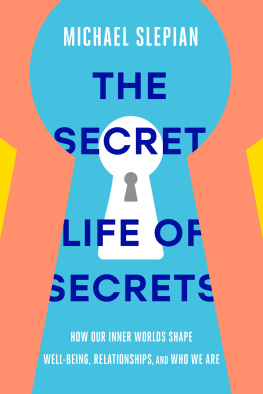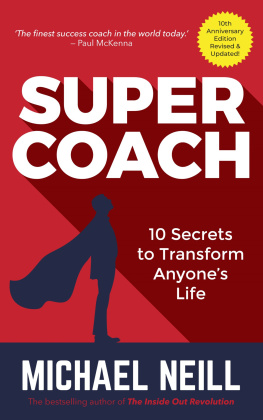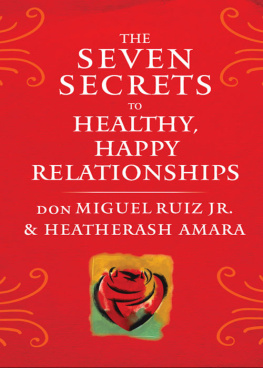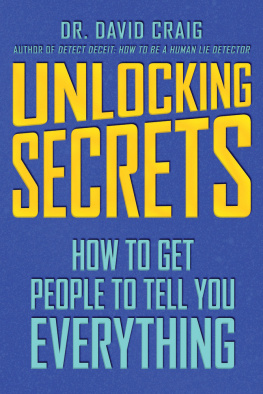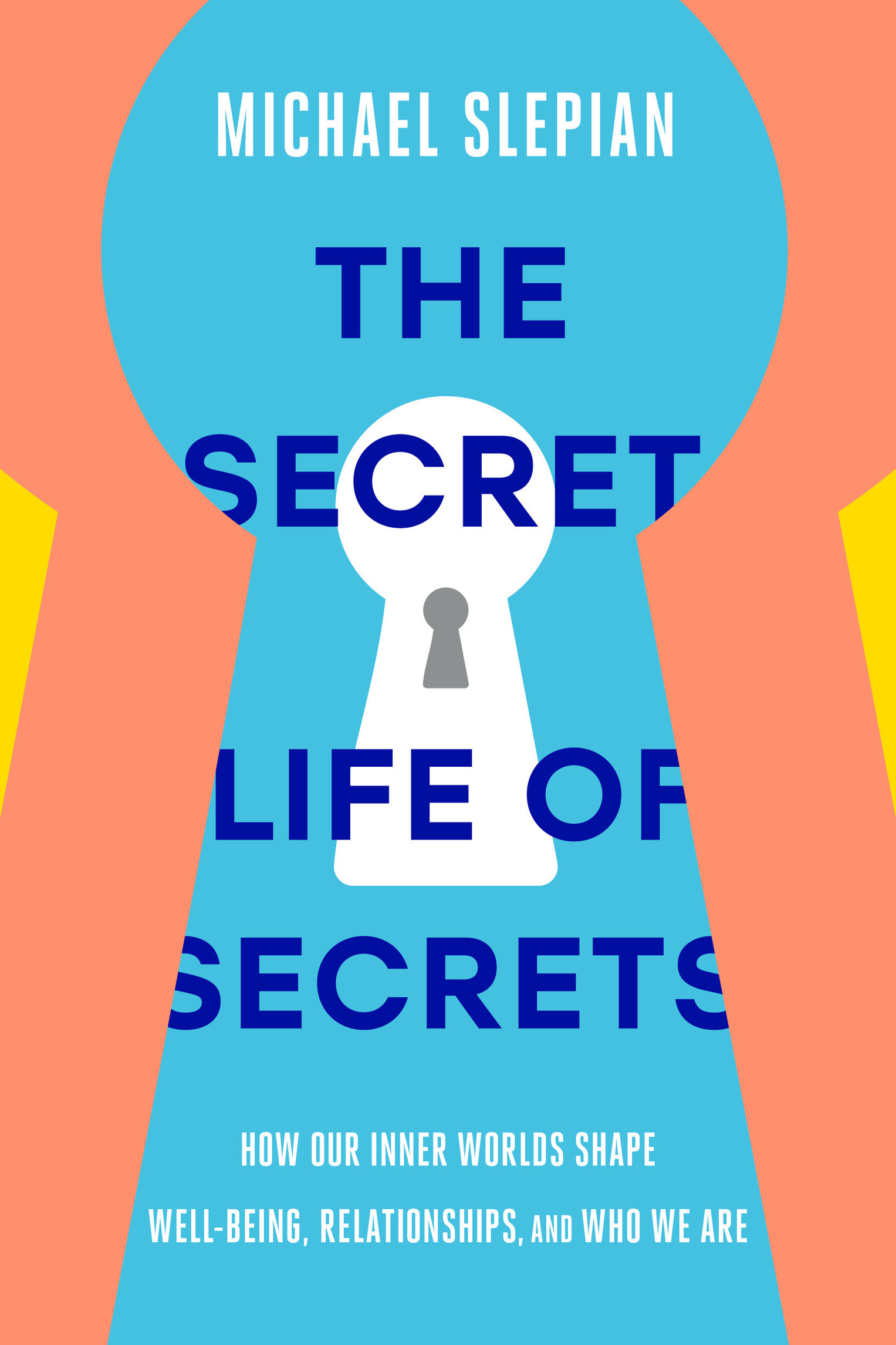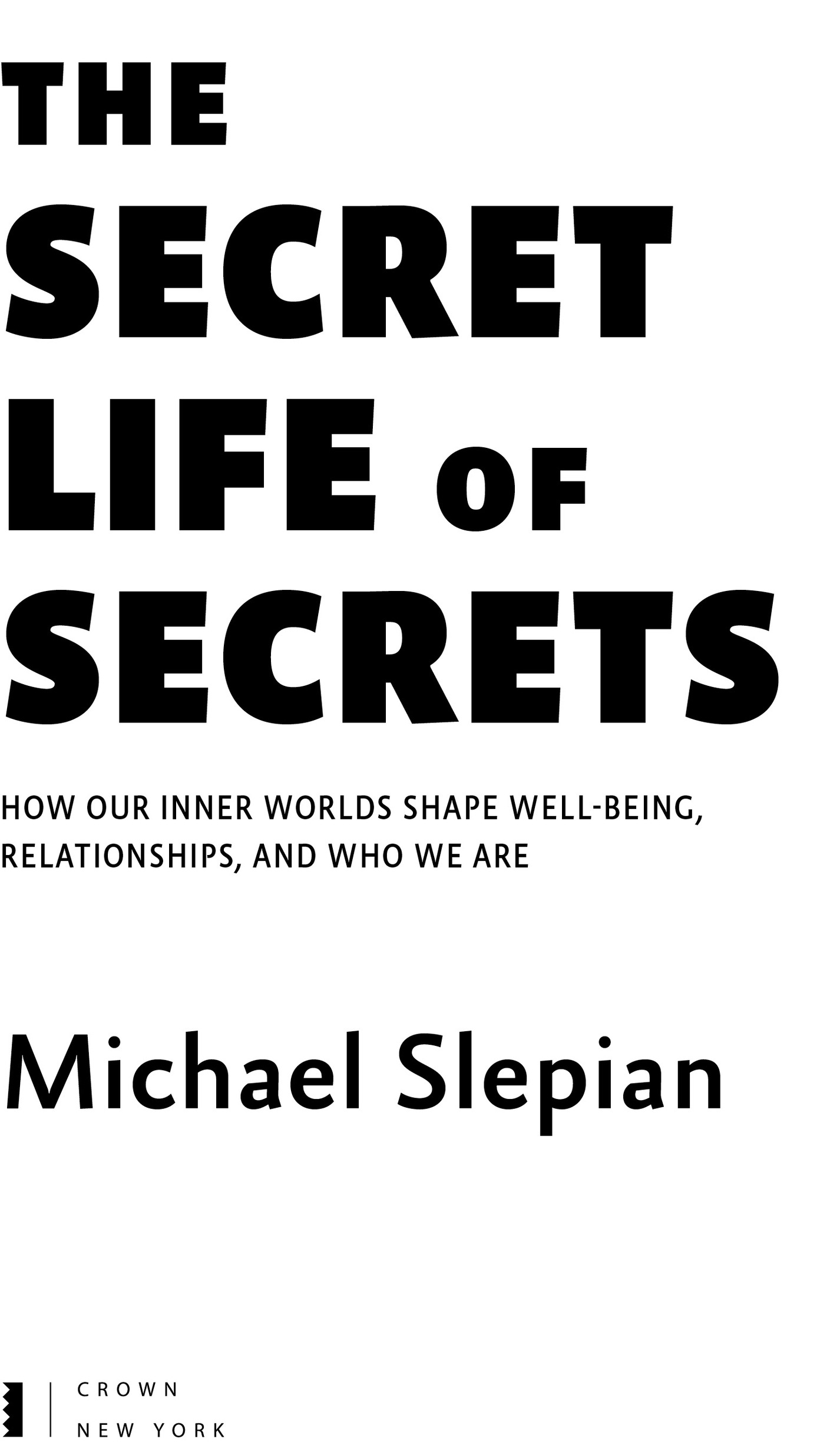All rights reserved.
Published in the United States by Crown, an imprint of Random House, a division of Penguin Random House LLC, New York.
Crown and the Crown colophon are registered trademarks of Penguin Random House LLC.
Names: Slepian, Michael, author.
Title: The secret life of secrets: how they shape our relationships, our well-being, and who we are / Michael Slepian.
Description: First edition. | New York: Crown, [2022] | Includes bibliographical references and index.
Identifiers: LCCN 2021054113 (print) | LCCN 2021054114 (ebook) | ISBN 9780593237212 (hardcover) | ISBN 9780593237236 (ebook)
Subjects: LCSH: Secrecy. | Family secrets. | Identity (Psychology) | Interpersonal relations.
Classification: LCC BJ1429.5 .S54 2022 (print) | LCC BJ1429.5 (ebook) | DDC 302.2dc23/eng/20211222
PREFACE
A Secret Revealed
I watched nervously as snow and ice closed down other East Coast destinations. Newsclips showed even D.C. had been brought to a standstill, but flights were still landing at New York City airports for the time being. I was lucky in the end; my flight from California made it off the ground on time, and I arrived in Manhattan without issue.
I had seen the Columbia campus only once before, as a high school student visiting the one college on my application list that I had zero chance of getting into, and now here I was, standing at the podium in the front of one of its lecture halls. My worry about the winter storms was replaced by a new anxiety. I was about to deliver my job talk, a ninety-minute research lecture and discussion that covered a range of topics, from how we judge others trustworthiness to how we judge the steepness of hills. I began the talk with my latest research on secrets.
The standard job interview in academia is an exhausting series of back-to-back meetings that youve spent countless hours studying forinterrupted only by the most important talk you will ever give, for which youve spent months preparing and practicing, and a handful of bathroom breaks, should folks remember to offer them. This interview was no different. When I began, hands went up right away, and the people raising them had questions ranging from the fundamental (what is a secret?) to the formidable (what about culture?).
But this isnt a story about my job interview. This day is forever seared in my memory for a different reason. Besides the talk, I remember two other things: one, after a full day of meetings, my future colleagues took me out to dinner, and then some of us continued on to my hotel bar; and two, later that same night, the very research I had spent that day showcasing would take an unexpected and dramatically personal turn.
It was sometime past midnight when we ordered another round of drinks, and when I realized the night felt like one spent with good friends. The interview already felt like it was from a time long ago, a distant memory. I suddenly remembered that my phone had vibrated earlier, and so I peeked to see why. A missed call from my dad. This was highly unusual. My dad never calls out of the blue, let alone close to midnight.
Thirty minutes later, we ordered the check instead of another round, and I saw a second missed call from my dad. My mind could only conjure the worst scenarios. Surely there had been a death in the family, or some other tragedy. Whatever he wanted to talk about, it seemed like it couldnt wait.
I returned my dads phone call. I need to share something with you, he said. Can you sit down? He then told me a story about my parents initial attempts to have children, and how they failed. Time after time, they failed, and eventually they learned why. My father is biologically unable to have children.
My father was telling me that he wasnt my biological father: that I was conceived by artificial insemination from an anonymous donor. This secret was being revealed to me at the conclusion of one of the most important days of my professional life. I was not sitting down.
I felt light-headed. A rush of adrenaline returned in full force as if I were back at the podium giving my talk, except now I was the one with questions. My dad answered my first big one before I could even ask it. My brother, born five years later, is in fact my half-brother, conceived from a different donor.
I patiently listened until my father finished his bombshell of a story. Then it was my turn. I reassured him that what he told me did not change anything between us. Hes my father, as he always has been. But I had questions. Why was this secret kept from me? Why was he telling me about it, and why now? Who else knew? It turned out that all my grandparents, uncles, and auntsthe entire family apart from my brother and mehad known the whole time. How in the world did everyone manage to keep this secret for so long, and what was it like to do so?
Ive spent the past ten years conducting research that speaks to the very questions I asked my dad that night. It would later dawn on me that my century-old field had yet to establish a psychology of secrecy precisely because it hadnt been asking questions like these. Psychologists have long been interested in how people form relationships and connect with each other; but why we hold back from others, and the consequences of not letting other people into our inner worlds, has largely been overlooked.
Prior researchers assumed that hiding information during conversations was the whole of secrecy, and they designed clever experiments based on that assumption. But when we look at real secrets such as the ones you are currently keeping, and when we ask how they affect you from day to day, a different picture begins to emerge.
More than a story of sneakiness or deceit, the story of secrecy is one of the inner workings of the mind, our sense of self and our relationships, how we cope with lifes challenges, and what makes us human.
All people have secrets, but not all secrets are alike. Some secrets dont hurt, and others do. But which secrets hurt, and why? Psychologists had yet to ask this question the night I learned my familys secret, but in my research Ive asked it more than a hundred times since. Thanks to tens of thousands of research participants who have shared their secrets with me, we can now shine a light on the secret life of secrets, and reveal the multiple ways in which they pervade our lives and what we can do to better live alongside them.
We may not want our secrets to be known, but we do want our selves to be known. Navigating this tension is key to our relationships with others. One of the core reasons that secrets are so difficult to keep is that secrecy goes against our human impulse to share our experiences with others. Indeed, not all secrets remain secrets. Sometimes we confess. Other times we confide.
Whether or not your secrets remain hidden, you will come away from this book with a better understanding of why we keep secrets, how they affect us in ways that you might not be aware of, and how to thrive while carrying them.

